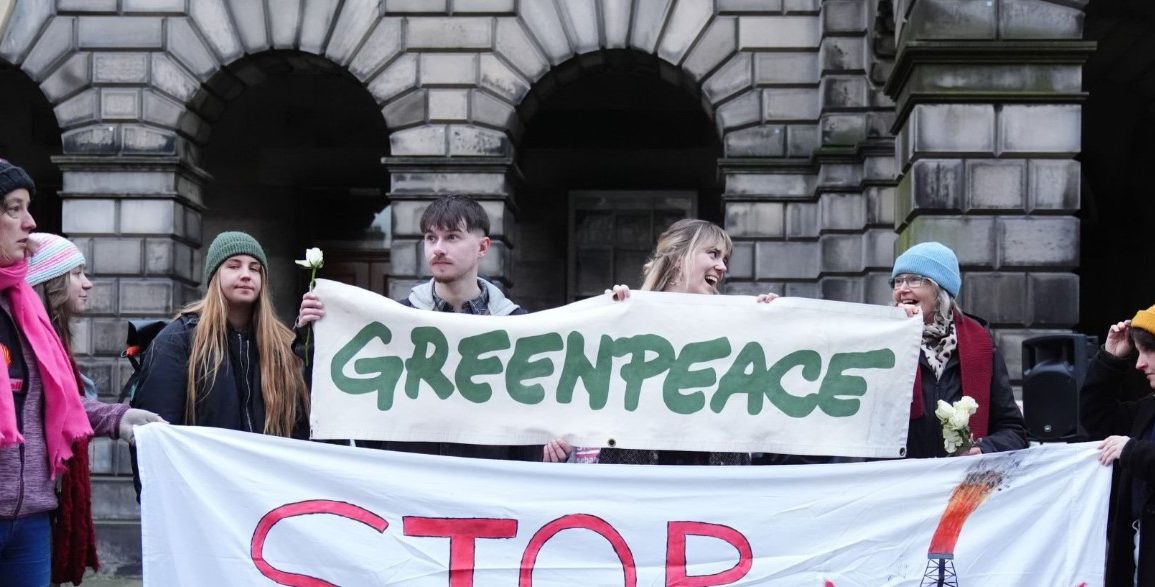In a landmark climate case, Greenpeace and Uplift have petitioned a Scottish court to revoke the drilling license for the Rosebank oilfield, the UK’s largest undeveloped oilfield.
Their plea argues that drilling will inflict severe environmental damage, adding millions of tons of carbon emissions that exacerbate global warming.
The Rosebank oilfield, granted to Norwegian energy company Equinor, lies roughly 130 km from Shetland and is estimated to hold nearly 500 million barrels of oil and gas.
Representing Greenpeace, Ruth Crawford KC emphasized in court that Equinor and its co-investor, Ithaca, ignored the climate impact of the oilfield.
“This project will produce substantial oil and gas, with significant effects on the environment and human health,” she argued.
Crawford underscored that climate considerations were bypassed in licensing, violating established environmental guidelines.

The judicial review in Scotland’s Court of Session coincides with global climate talks in Azerbaijan, where UK leaders reaffirmed an ambitious 81% reduction target in carbon emissions by 2035.
Campaigners stress that halting Rosebank would be a crucial step in achieving this goal. If permitted, the oilfield is projected to emit more CO2 than the combined annual emissions of 28 of the world’s poorest nations.
Citing a recent UK Supreme Court ruling mandating the government to assess climate impacts of new projects, activists argue the licensing is legally unsound.
The case also tests the stance of the UK’s Labour government, which has vowed to reduce oil dependency.
Despite the government’s non-defense stance, companies like Equinor defend Rosebank as vital to the economy, jobs, and tax revenue.
On Tuesday, over 150 climate activists gathered outside the courthouse, voicing hope that a court victory would underscore the urgency of climate action.
Lauren MacDonald from the Stop Rosebank campaign remarked, “Each fossil fuel project we stop means a fraction of a degree of warming avoided—lives saved.”
For campaigners, the decision represents not only legal accountability but a step toward a sustainable future.

